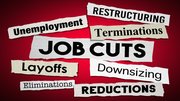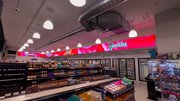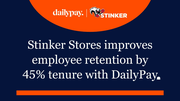Article
The retail power of suggestion
A carefully worded farewell can often subliminally impact shoppers into coming back for more.

March 29, 2009 by James Bickers — Editor, Networld Alliance
Just down the road from my house is a great, locally owned, independent comic book shop that used to be one of my frequent haunts. Adulthood intervened and put a stop to the haunting for a while, but recently I've gone back in to reconnect with a hobby that I once loved.
The owner, an unassuming and quiet fellow named Doug, is there virtually all of the time. He has a deep love for and knowledge of his product, and is always happy to make suggestions about what to read next, based on what you've previously enjoyed (if you want the names of some truly excellent noir and espionage graphic novels, email me and I'll share).
Doug does something else that I didn't notice at first, a powerful little trick of language: When he's handing you your purchase and change, he leaves you with a phrase that, for lack of a better term, is a command to come back.
He doesn't say "Come see us again!" or "Thanks, please come again!" or any of the common parting shots. No, he says, confidently, "You'll be back" or "You'll enjoy" or "You'll come back for more soon!"
It's a tiny semantic difference, but a major psychological one. Like I said, I didn't notice this at first — but when I bought the first volume of "Queen and Country" and Doug said "You'll enjoy that, and be back soon for number two," I immediately formed a mental picture of myself doing exactly that. About a week later, that's precisely what I did.
Notice the level of specificity in his parting shot. He planted the seed for my next purchase by spelling it out for me. It's not some nebulous idea of future business; it's a description of a specific product that I'm going to buy in the coming days.
Visualization is one of the cornerstones of any flavor of self-improvement; it works because the human brain is so incredibly good at taking the things it sees and carrying out the next steps needed to make them real. This is precisely why Doug's method is so powerful — it paints the brain a picture of the customer's next visit, the next purchase, the next satisfying experience.
Fortune favors the brave, and business goes to the bold. A timid plea of "please, come back and see us" reaches out for pity, and sometimes that works. Much more effective is a simple and direct statement of what value the customer received, why they will want to receive it again, and what they will come back for.
 ChatGPT
ChatGPT Grok
Grok Perplexity
Perplexity Claude
Claude





